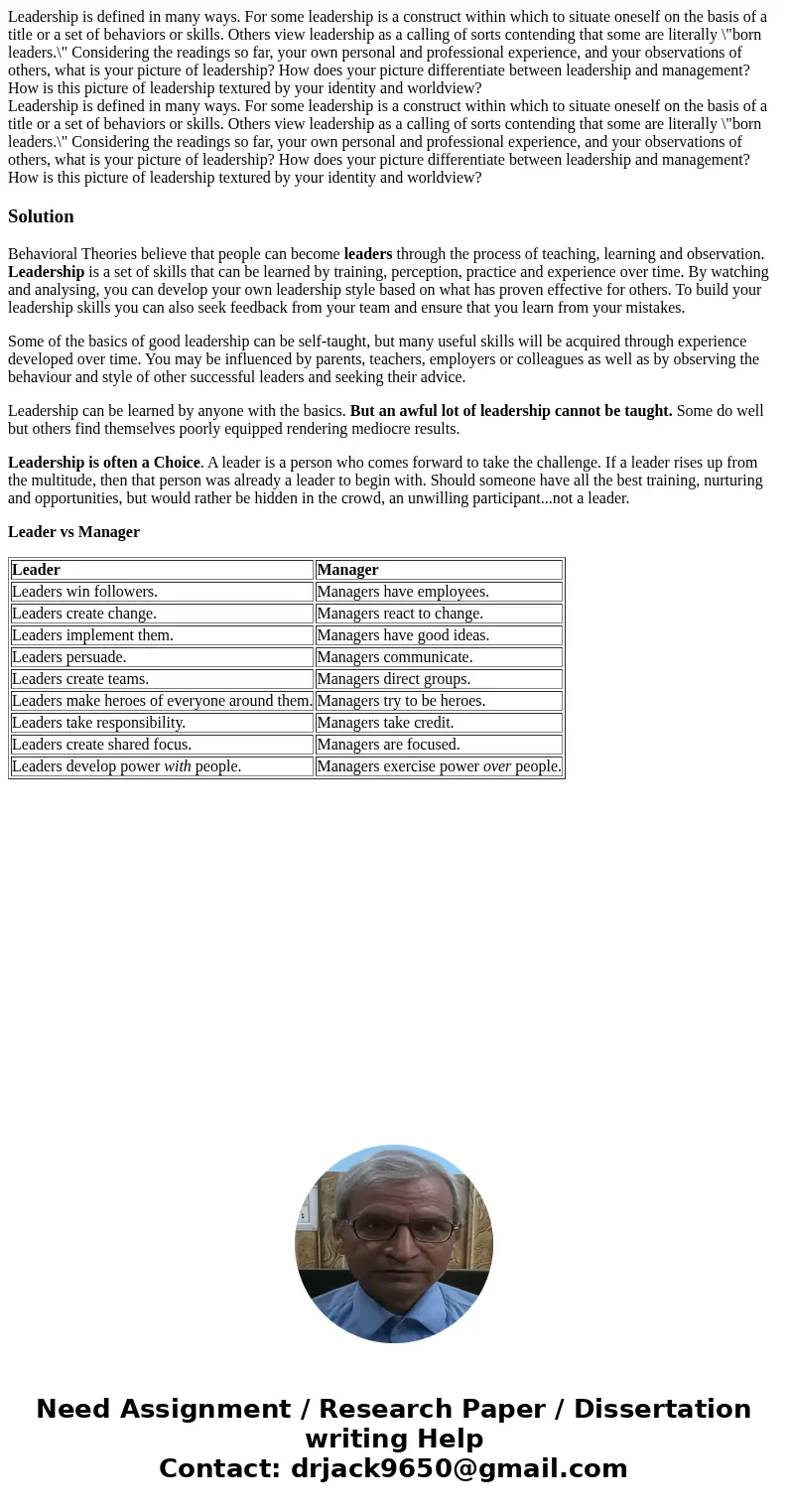Leadership is defined in many ways For some leadership is a
Solution
Behavioral Theories believe that people can become leaders through the process of teaching, learning and observation. Leadership is a set of skills that can be learned by training, perception, practice and experience over time. By watching and analysing, you can develop your own leadership style based on what has proven effective for others. To build your leadership skills you can also seek feedback from your team and ensure that you learn from your mistakes.
Some of the basics of good leadership can be self-taught, but many useful skills will be acquired through experience developed over time. You may be influenced by parents, teachers, employers or colleagues as well as by observing the behaviour and style of other successful leaders and seeking their advice.
Leadership can be learned by anyone with the basics. But an awful lot of leadership cannot be taught. Some do well but others find themselves poorly equipped rendering mediocre results.
Leadership is often a Choice. A leader is a person who comes forward to take the challenge. If a leader rises up from the multitude, then that person was already a leader to begin with. Should someone have all the best training, nurturing and opportunities, but would rather be hidden in the crowd, an unwilling participant...not a leader.
Leader vs Manager
| Leader | Manager |
| Leaders win followers. | Managers have employees. |
| Leaders create change. | Managers react to change. |
| Leaders implement them. | Managers have good ideas. |
| Leaders persuade. | Managers communicate. |
| Leaders create teams. | Managers direct groups. |
| Leaders make heroes of everyone around them. | Managers try to be heroes. |
| Leaders take responsibility. | Managers take credit. |
| Leaders create shared focus. | Managers are focused. |
| Leaders develop power with people. | Managers exercise power over people. |

 Homework Sourse
Homework Sourse